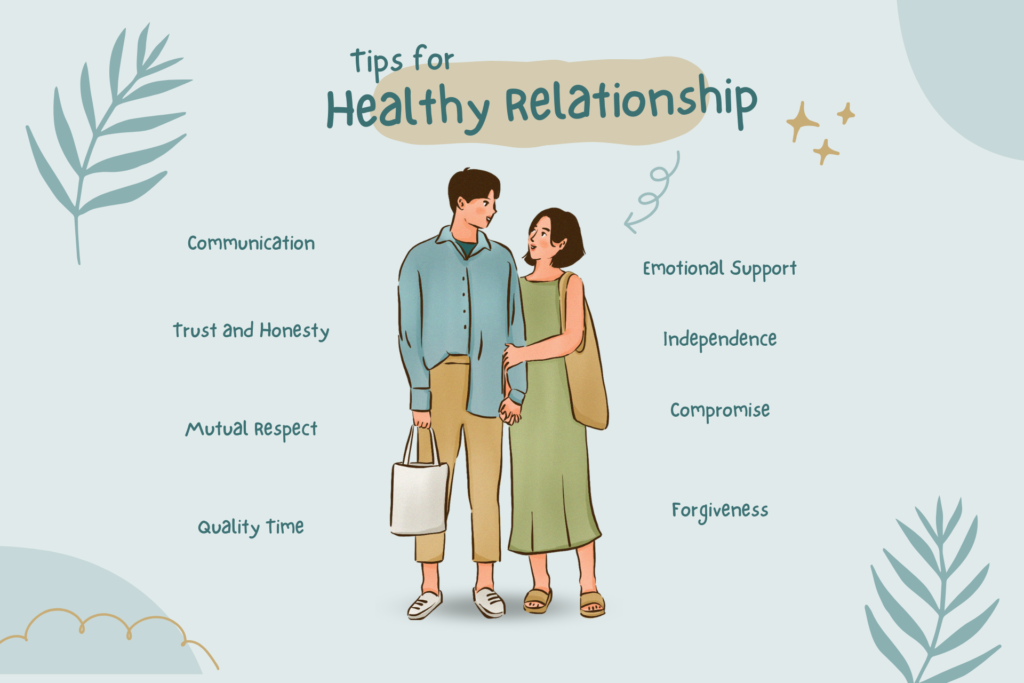We have been led to believe that sexual activity is as natural as breathing. However, according to British philosopher Alain de Botton, its intricacy is “near to that of rocket science.” Not only is it a potent force, but it often runs counter to many other values we hold dear. Sex creates inherent conflicts within us. We seek sex with strangers or individuals we do not love. It makes us desire actions that appear sinful or humiliating, like hitting someone or being tied down. We feel awkward requesting sex acts from the people we care about.
There is no doubting that sex has its steamy allure, and in its most perfect moments, it eliminates the isolation that embodiment imposes on us. However, de Botton, the founder of London’s School of Life, asserts that such instances are exceptional rather than common. “Sex will always give us headaches; it’s not something we can magically become less anxious about.” We suffer secretly, feeling “painfully odd” about the sex we desire or strive to avoid.
If we turn to sex books for guidance on this essential aspect of our life, we are often told that most issues are mechanical and methodological. In his new book, How to Think More About Sex, Alain de Botton argues that our difficulties stem from the multiplicity of things we want out of life, the accumulation of daily resentments, and the peculiarity of the sex drive itself. Here are a few of the most fundamental questions it addresses. —The Publishers
Why do most individuals conceal their true desires?
It is uncommon to go through life without feeling strange about sexuality. It is an area in which most of us have the uncomfortable sensation that we are exceptional. Despite being one of the most private activities, sex is surrounded by several socially sanctioned ideas that codify how normal people are expected to feel and deal with the subject. In reality, though, few of us are even remotely sexually normal. Almost everyone is tormented by guilt and neuroses, phobias and disruptive drives, apathy and disdain. We are universally deviant, but only in comparison to highly distorted normative ideals.
Most of what we are sexually stays inaccessible to those who we would like to have favourable opinions of us. In love, men and women instinctively withhold more than a percentage of their wants for fear of provoking extreme distaste in their lovers, which is typically correct.
Nothing is erotic that is not also revolting with the wrong person; this makes erotic moments so intense: At the very moment when contempt might be at its peak, we discover only acceptance and authorization. Imagine two tongues probing the most intimate region of the mouth, that dark, wet hollow typically only our dentist accesses. The privileged nature of a couple’s union is sealed by an act that would horrify them if anyone else commits it.
What transpires in the bedroom between a couple is an act of reciprocal reconciliation between two sexual selves rising from sinful seclusion. Their behavior is diametrically opposed to what the civilized world expects of them. Finally, in the semi-darkness, a couple can confess the wondrous and demented desires that having a body induces.
Why is it more difficult to discuss sex in the current era?
Commonly, our discomfort with sex is exacerbated by the notion that we live in a liberated age and should, by now, find sex to be a straightforward and uncomplicated matter, comparable to tennis, something that everyone should engage in as frequently as possible to alleviate the stresses of modern life.
The narrative of enlightenment and progress glosses over an undeniable fact: we can never expect to be easily liberated from sexuality. It is a fundamentally disruptive and overwhelming force, at variance with the bulk of human aspirations and virtually incapable of discretely integrating into civilized society. Sex is neither inherently democratic or charitable. It refuses to sit comfortably atop love. No matter how hard we try to tame it, it tends to wreak havoc on our lives; it destroys our relationships, threatens our productivity, and forces us to stay up too late in nightclubs chatting to people we don’t like but whose bare midriffs we want to touch. Respectful accommodation with an anarchic and irresponsible authority should be our greatest chance.
How is sexual activity an effective lie detector?
Involuntary physiological responses, such as the moisture of a vagina and the rigidity of a penis, are emotionally pleasant (and concurrently sexual) because they indicate a type of acceptance that cannot be manipulated rationally. Erections and lubrication are especially accurate and trustworthy indicators of interest since they cannot be induced by willpower. The wet vagina and the stiff penis serve as unambiguous indicators of sincerity in a world where fake enthusiasms are prevalent and where it is often difficult to discern whether people genuinely like us or are merely being nice out of a sense of obligation.
A kiss is delightful due to the sensory responsiveness of our lips, but a significant portion of our enjoyment has nothing to do with the physical nature of the act: it derives from the understanding that someone else likes us quite a bit.
What is the appeal of sex in an airplane’s back like uncommon places?
The majority of people we encounter daily barely notice us. Their businesslike apathy may be uncomfortable and embarrassing for us; therefore, the special allure of the illusion that life might be turned on its head and usual priorities flipped. For instance, the sexiness of nurses’ uniforms derives from the contrast between the rational control they represent and the untamed sexual desire that might temporarily triumph over it, if only in dreams.
Imagining sex in an unobserved corner of a university library, a restaurant’s washroom or a train car can be tantalizing,like uniforms can inspire lust by evoking the idea of rule-breaking. Our willful violation can give us a sense of strength that transcends the sexual. To have sex at the rear of an airplane full of business passengers is to attempt to overturn the ordinary hierarchy of things, infusing passion into an environment where cold-hearted discipline typically trumps individual desires. At 35,000 feet, just as in a cubicle, the triumph of intimacy appears sweeter, and our pleasure increases proportionally. At the juncture between the formal and the personal, eroticism manifests itself most obviously.
Why is “Not tonight, Sweetheart” so damaging?
Logic would suggest that being married or in a long-term relationship would eliminate the anxiety that normally accompanies attempts to induce sex between two people. However, while any union may make sex a permanent theoretical possibility, it will not legitimize nor facilitate the act. In addition, a refusal to have sex against a backdrop of eternal potential may be viewed as a considerably graver breach of the ground rules than a comparable stalemate in other settings. Being rejected by someone we just met in a bar is neither shocking nor hurtful. It is far stranger and more humiliating to experience sexual rejection from the person with whom we have vowed to spend the rest of our lives.
Why is impotence considered a success?
There are few greater causes of a man’s shame or his partner’s feelings of rejection. The fundamental issue with impotence is the harm to both partners’ self-esteem.
We are gravely incorrect in our understanding. Impotence is the strangely vexing result of reason and benevolence interfering with the free flow of animal impulses, of our new inclination to wonder what another may be feeling and then identify with his or her potential objections to our invasive or unsatisfactory demands.
Except for the least self-aware among us, we are all occasionally startled by how repugnant our sex desires, flesh, and caresses may appear to others. Ironically, an advanced capacity for love and tenderness can make us too sensitive to harass others into having sex with us, although we may occasionally encounter individuals who are not repulsed by our desire for urgent and forceful sexual congress and who find nothing repulsive about the most extreme erotic extremes.
Therefore, impotence is a symptom of respect, a fear of causing displeasure through the imposition of our own desires or the inability to satisfy our partner’s needs — a civilized fear of disappointing or upsetting others. It is a valuable asset that demonstrates the accomplishment of ethical imagination.
What do religions know that we don’t about sexuality?
Only religions continue to take sex seriously, respecting its ability to distract us from our priorities. Only religions view it as potentially hazardous and must be guarded against. Perhaps only after spending many hours on youporn.com can we realise that religions are correct on this one point: Sex and sexual images can depressingly easily overwhelm our higher rational faculties. Religions are sometimes ridiculed for their prudishness, yet they wouldn’t evaluate sex as negatively if they didn’t also recognise that it can be pretty amazing.
Does marriage ruin sex?
A gradual decline in the intensity and frequency of sex between a married couple is an inevitable fact of biological life and, as such, a sign of profound normalcy, even though the sex-therapy industry has devoted the majority of its efforts to reassure us that marriage should be characterized by constant desire.
Most often, the lack of sex in established partnerships is attributable to difficulties moving between ordinary and sensual realms. The attributes required of us when we engage in sexual activity are diametrically opposed to those employed in most of our daily activities. Marriage typically involves, if not immediately, then within a few years, the management of a household and the upbringing of children, which frequently resemble the management of a small business and require many of the same skills.
Sex, with its contradictory emphasis on expansiveness, inventiveness, fun, and loss of control, must disrupt this pattern of regulation and self-control by definition. We avoid sex not because it isn’t enjoyable but because its joys diminish our ability to withstand the hard demands of our household arrangements.
In addition to altering and unbalancing our relationship with our household co-manager, sex also affects it. Its introduction demands one partner or another to confess what may feel like shameful sexual wants, making them vulnerable. We must change from arguing about what home item to purchase to making more difficult requests, such as having our spouse turn over and adopt the demeanor of a subservient nurse or put on boots and start calling us derogatory insults.
The satisfaction of our needs may compel us to request things that, from a distance, are susceptible to being judged as both ridiculous and contemptible, so that we may prefer, in the end, not to entrust them to someone on whom we must rely for so much else to live a normal, respectable life. We may find it simpler to don a rubber mask or pretend to be a predatory, incestuous cousin with someone we won’t have to share breakfast with for the next thirty years.
Why are kitchen bread crumbs harmful to sex?
The common conception of anger entails red faces, raised voices, and slammed doors, but more often than not, it simply transforms into apathy. Because the precise occurrences that enrage us occur so swiftly and invisibly in such chaotic situations (at the breakfast table, before the school run), we cannot form a meaningful protest against them. And we frequently do not express our anger, even when we are aware of it, since the things that irritate us might appear so petty or bizarre that they would sound absurd if uttered aloud: “I am upset with you because you cut the bread in the incorrect direction.” Once we are in a relationship, however, there is no longer such a thing as a minor detail.
Each partner may be hit by and fire hundreds of little arrows in a typical week without recognizing it. The only visible repercussions are a nearly imperceptible chill in the relationship and, most importantly, a reluctance to engage in sexual activity with the other. It is difficult to relinquish the gift of sex when we are annoyed.
We cannot rise above the fray and shift the emphasis from recrimination to identifying the real causes of pain and fear. Couples must acknowledge that the flow of their distinct personalities fashioned their hostility through the emotional gorges of their own childhoods. We believe we already know all there is to know about interacting with others without making any effort to learn anything. We are unprepared for the effort we must legitimately exert to ensure the success of even the most decent adult relationships.
Why are hotels spiritually significant?
The walls, mattresses, chairs with plush upholstery, televisions, room service menus, and carefully packaged soaps can do more than satisfy a need for luxury. A night spent in a hotel room solves long-term sexual stagnation. We can perceive the sexual aspect of our companion, which is frequently linked to the monotony of our daily life. We may attribute our inability to have more sex at home to the presence of the carpet and living room furniture. The physical environment prevents our evolution. The furniture asserts that we cannot alter since it never does so.
Behind the roles imposed upon us by our household circumstances, we may rediscover the sexual identities that initially brought us together in a hotel room, aided by terry fabric bathrobes, a fruit basket, and a view of an exotic port. We can perceive our partner as if we had never seen him before.
Why is adultery so popular?
Contrary to all public opinions on adultery, the absence of any desire to stray is irrational, and against nature, a heedless disregard for the fleshly reality of our bodies, a denial of the power wielded over our more rational selves by erotic triggers such as high-heeled shoes and crisp shirts, smooth thighs and muscular calves.
However, a spouse who reacts angrily to being betrayed is evading a tragic reality: no one can be everything to another. The real problem lies in the philosophy of modern marriage, with its insane ambitions and insistence that our most pressing needs can be met with the assistance of only one other individual.
If viewing marriage as the answer to all our hopes for love, sex, and family is naive and misguided, then viewing adultery as a remedy for the disappointments of marriage is also naive and misguided. Sleeping with someone outside of marriage is impossible without jeopardizing our interests. There is no solution to marriage’s conflicts.
When an individual with whom we have been engaging in erotica in an online chat room recommends a meeting at an airport hotel, we may be tempted to sacrifice our lives for a few hours of pleasure. The defenders of feeling-based marriage revere emotions for their authenticity only because they avoid closely examining what floats through most people’s emotional kaleidoscopes: all the contradictory, sentimental, and hormonal forces that pull us in a hundred often irrational directions.
We couldn’t be fulfilled if we weren’t occasionally inauthentic – inauthentic, for example, regarding our passing inclinations to strangle our children, poison our spouse, or dissolve our marriage over a disagreement about replacing a light bulb. Repression is required for both the mental health of our species and the proper functioning of a well-ordered community. We are chemically chaotic notions. We should be grateful and reassured that our exterior circumstances are frequently at odds with how we feel; it is a sign that we are probably on the right path.













